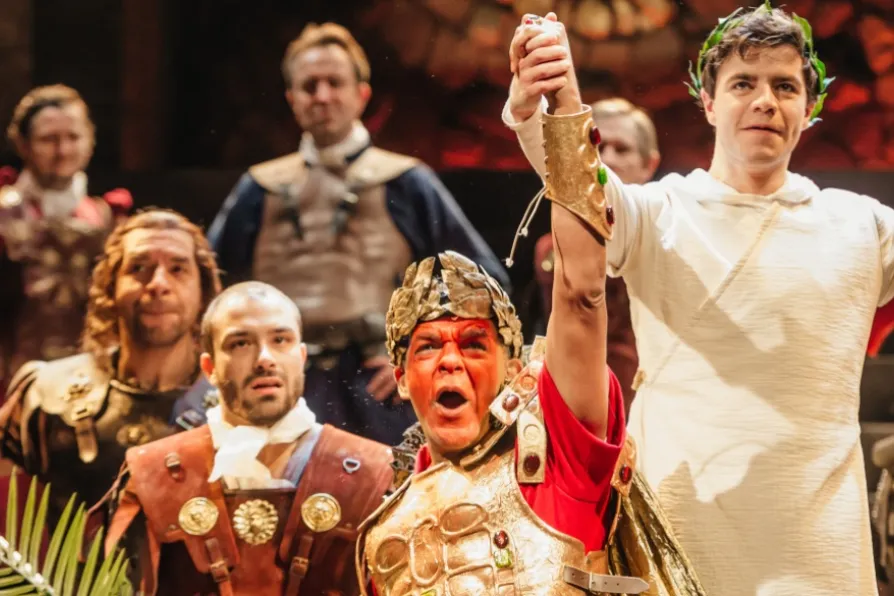New releases from Van Morrison, Tyler Ballgame, and Dry Cleaning

 Power play: Imperium Part II
[Ikin Yum]
Power play: Imperium Part II
[Ikin Yum]
Imperium Parts I and II
The Swan Theatre, Stratford-upon-Avon
MIKE POULTON, adapter of Robert Harris’s trilogy of novels narrating the life of the great Roman orator Cicero, clearly recognises the problems anyone dramatising a novel has to cope with.
There's not only often the weight of plot detail involved, he's said, but also the demands on the linear narrative progression in theatre where, unlike in the novels, audiences cannot check back on incidents and characters.

GORDON PARSONS is blown away by a superb production of Rostand’s comedy of verbal panache and swordmanship

GORDON PARSONS joins a standing ovation for a brilliant production that fuses Shakespeare’s tragedy with Radiohead's music

GORDON PARSONS meditates on the appetite of contemporary audiences for the obscene cruelty of Shakespeare’s Roman nightmare











